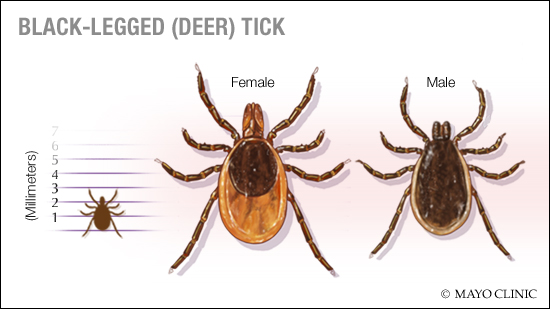Infectious Diseases

July 5, 2022
Scientists are studying why tick-borne infections, including Lyme disease, are on the rise and why ticks are expanding into new geographic areas. Lyme disease, the[...]
January 10, 2013
January 3, 2013
December 3, 2012
November 27, 2012
August 23, 2012
July 25, 2012
June 18, 2012
Explore more topics
 Sign up
Sign up

Mayo Clinic Connect
An online patient support community
